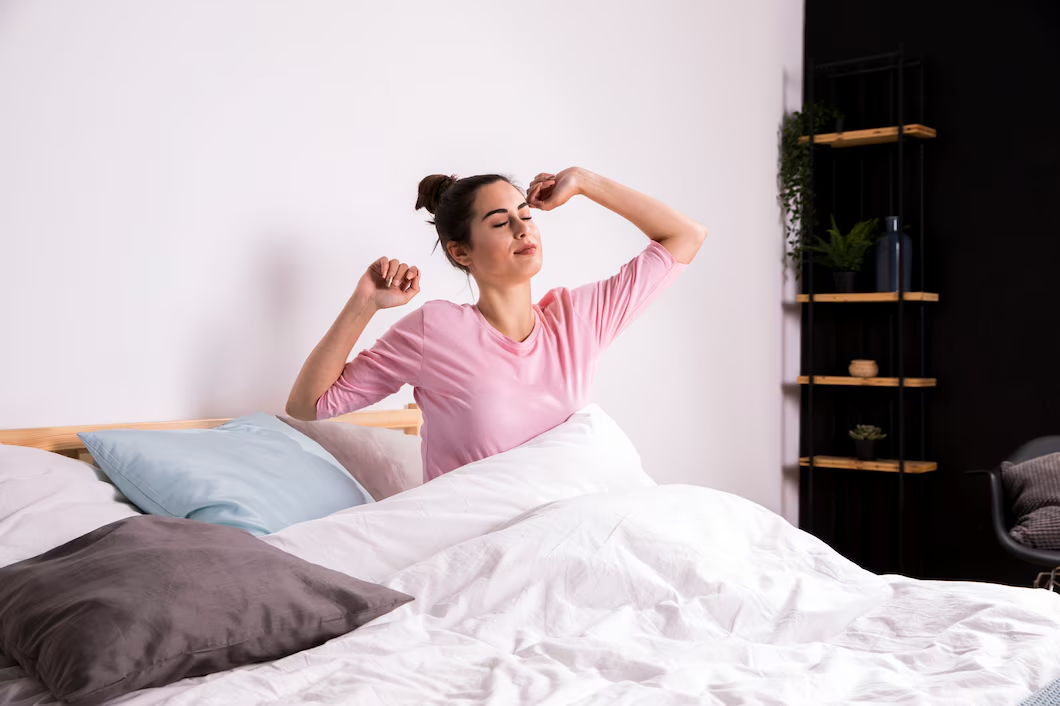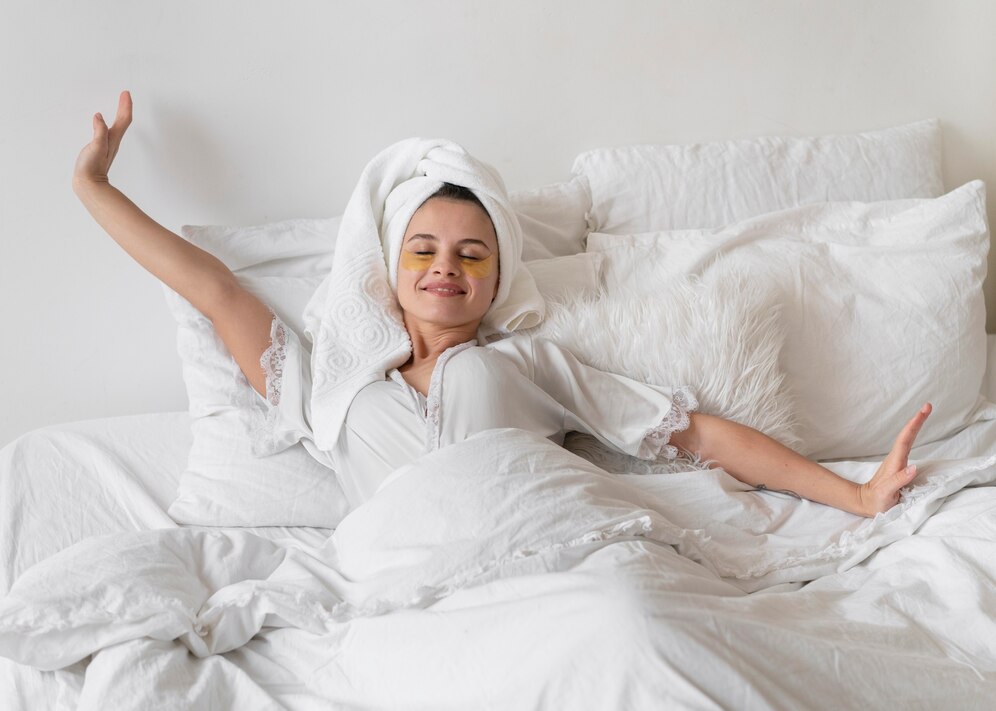The Best Sleep Hygiene Practices for a Restful Night
There’s no doubt that sleep is invaluable to overall well-being, and yet a lot of individuals have difficulty getting quality sleep. Good physical and mental health comes from creating healthy sleep habits. A consistent bedtime routine can help people fall asleep more quickly, remain asleep for longer and wake up feeling more rested. If you’re seeking ways to

There’s no doubt that sleep is invaluable to overall well-being, and yet a lot of individuals have difficulty getting quality sleep. Good physical and mental health comes from creating healthy sleep habits. A consistent bedtime routine can help people fall asleep more quickly, remain asleep for longer and wake up feeling more rested. If you’re seeking ways to improve sleep quality, implementing better sleep hygiene practices is an excellent initial measure.
The UK is a nation where it has become common to be constantly on the move, juggling long work hours, working long periods of commutes and spending too many hours on screens, leaving many people with the notion that following a sleep schedule is challenging to uphold. With a few tweaks, however, anyone can improve their sleep hygiene and get more restorative shut-eye. This article outlines best practices that can help you improve the quality of your sleep and also how you can follow a bedtime routine that creates sustainable results.
Understanding Sleep Hygiene
Sleep hygiene is the suite of behaviours and environmental conditions that influence the quality of your sleep. Bad sleep hygiene — for example, going to bed at inconsistent times, drinking too much caffeine or using screens late into the night — can result in trouble falling asleep and staying asleep. Conversely, practising healthy sleep habits can greatly improve the amount and quality of sleep received.
The Importance of Sleep Hygiene
- Boosts Mental Health – Good sleep reduces stress, anxiety, and symptoms of depression.
- Enhances Physical Health – Sleep supports immune function, heart health, and metabolic balance.
- Improves Cognitive Function – Quality sleep sharpens memory, focus, and problem-solving skills.
- Increases Energy Levels – A well-rested body and mind perform more efficiently throughout the day.
- Regulates Hormones – Sleep plays a crucial role in balancing hormones, including those responsible for appetite, metabolism, and mood stability.

Healthy Sleep Habits for Better Rest
1. Maintain a Consistent Sleep Schedule
One of the most effective ways of improving sleep quality is to go to bed and wake up at the same time every day, even on weekends. This helps regulate the body’s internal clock, known as the circadian rhythm.
- Aim for 7-9 hours of sleep per night, as recommended by sleep experts.
- Avoid drastic changes in your sleep schedule, as they can confuse your body’s internal clock.
- Set a bedtime that allows for adequate rest before your morning commitments.
- Use an alarm clock with natural light simulation to wake up gently.
2. Create a Relaxing Bedtime Routine
A bedtime routine signals to the body that it’s time to wind down. Engaging in calming activities before bed can make falling asleep easier and prevent restless nights.
- Read a book – Opt for light reading instead of stimulating thrillers or work-related material.
- Take a warm bath or shower – Helps lower body temperature, signalling sleep readiness.
- Listen to soothing music or white noise – Can drown out disruptive sounds and create a calm environment.
- Practise relaxation techniques – Deep breathing, meditation, or gentle yoga can help reduce stress before bed.
- Reduce stimulating activities – Avoid engaging in mentally taxing work or intense conversations late at night.
3. Limit Screen Exposure Before Bed
Blue light from screens can suppress melatonin production, the hormone responsible for sleep. To improve your bedtime routine:
- Avoid using phones, tablets, or computers at least 30-60 minutes before bed.
- Use blue light filters or night mode settings in the evening to reduce the impact on melatonin levels.
- Opt for alternative evening activities like journaling, stretching, or listening to calming podcasts.
- Keep electronic devices out of the bedroom to reduce distractions and disruptions during sleep.

Optimising Your Sleep Environment
The sleep environment plays a crucial role in improving sleep quality. Making a few simple adjustments to your bedroom can help promote deeper, more restful sleep.
1. Keep Your Bedroom Cool and Dark
- Set room temperature between 16-18°C, the optimal range for sleep.
- Use blackout curtains to block streetlights or early morning sunlight.
- Consider an eye mask if light exposure is unavoidable.
- Reduce distractions from outside lights by using dim nightlights if necessary.
2. Invest in a Comfortable Mattress and Pillows
An unsupportive mattress or pillow can lead to discomfort, causing sleep disruptions.
- Choose a mattress that suits your preferred sleeping position (side, back, or stomach sleeper).
- Replace old pillows regularly to maintain neck and spine alignment.
- Use breathable bedding materials to prevent overheating at night.
- Experiment with different pillow firmness levels to find the best support for your head and shoulders.
3. Reduce Noise Disturbances
External noise can be a major sleep disruptor, particularly in urban areas.
- Use white noise machines or fans to mask background noise.
- Wear earplugs if street sounds or noisy neighbours affect your sleep.
- Place rugs, curtains, or soft furniture to help absorb sound in the bedroom.
- Avoid keeping a ticking clock or other noisy electronics near your sleeping area.
Nutrition and Lifestyle Habits That Influence Sleep
1. Watch Your Caffeine and Alcohol Intake
Caffeine and alcohol both have a major effect on sleep quality.
- Do not drink caffeine (tea, coffee, energy drinks) at least 6 hours before going to bed.
- Reduce alcohol consumption as it can interfere with sleep cycles and contribute to waking up overnight.
- Use herbal teas such as chamomile, valerian root, or lavender that have a calming effect.
- Stay hydrated, but don’t drink too much liquid just before bed to limit trips to the bathroom at night.
2. Avoid Heavy Meals Before Bedtime
Eating a large meal late at night can cause discomfort and indigestion, making it harder to fall asleep.
- Have dinner at least 2-3 hours before bed.
- Choose light, sleep-friendly snacks like bananas, almonds, or warm milk if needed.
- Avoid spicy, fried, or high-sugar foods in the evening, as they can interfere with digestion and sleep quality.
3. Exercise Regularly but Not Too Late
Engaging in physical activity can help regulate the sleep cycle, but timing is important.
- Aim for at least 30 minutes of moderate exercise most days.
- Avoid intense workouts within 2 hours of bedtime, as they can be stimulating.
- Activities like yoga, stretching, or a short evening walk can aid relaxation before sleep.

Managing Stress and Anxiety for Better Sleep
Mental well-being plays a vital role in improving sleep quality. Stress and anxiety are common causes of sleep disturbances, but adopting relaxation techniques can help.
1. Practise Mindfulness and Meditation
Mindfulness and meditation promote relaxation and prepare the mind for sleep.
- Try guided meditation apps or breathing exercises before bed.
- Progressive muscle relaxation (PMR) can ease tension in the body.
- Focus on gratitude or positive affirmations to calm the mind before sleep.
2. Keep a Sleep Journal
Tracking sleep patterns and potential disruptors can help identify issues and solutions.
- Record your sleep and wake-up times.
- Note any lifestyle factors that may have affected sleep.
- Identify patterns and make necessary adjustments.
Conclusion
Adopting healthy sleep habits is essential for overall well-being. A well-structured bedtime routine and an optimised sleep environment can significantly contribute to improving sleep quality. Simple changes such as maintaining a regular sleep schedule, reducing screen exposure, and managing stress effectively can help you achieve deeper, more restorative sleep.
If you’re in the UK and experiencing issues with sleep disturbances, these solutions will help in the long term. Learning to prioritise your sleep is one of the best attributes anyone can possess for their health, productivity and day-to-day activities. Make these changes today and experience the difference in your life due to quality sleep.